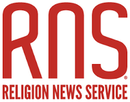
I met the 29-year-old Moses at the Morning Star Baptist Church in Hattiesburg, Mississippi, in February 1964, when I was a young rabbi serving Congregation B’Nai Jehudah in Kansas City, Missouri. Like millions of Americans, I had been deeply moved months before by the huge civil rights rally that drew hundreds of thousands of people to the Lincoln Memorial.
In February 1964, the Rabbinical Association of Greater Kansas City sent me to Hattiesburg as its official representative to participate in the interreligious Ministers’ Project, which included rabbis, Presbyterian pastors and Episcopal priests from all over the country. I spent a week in Mississippi supporting the town’s African Americans, who were cynically forced to take a detailed and lengthy test that only a constitutional scholar could pass, designed to systematically deprive them of their vote.


 RSS Feed
RSS Feed


